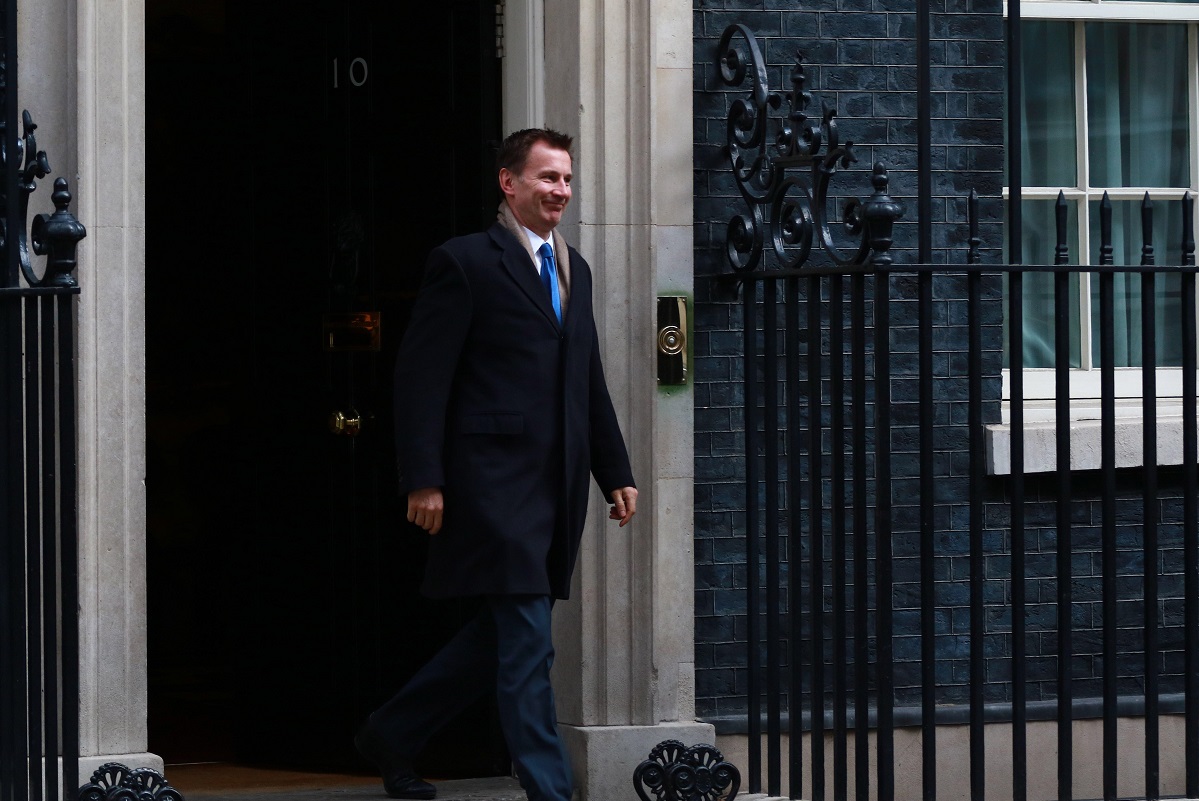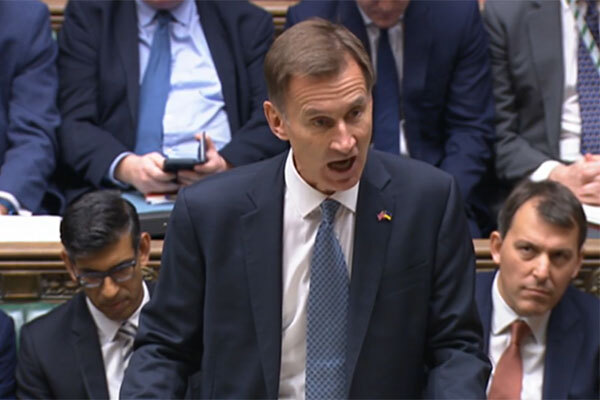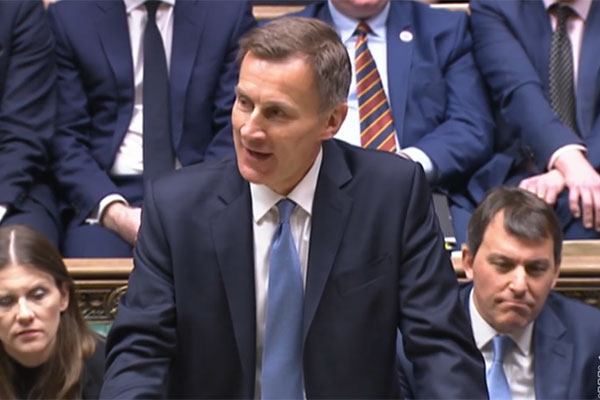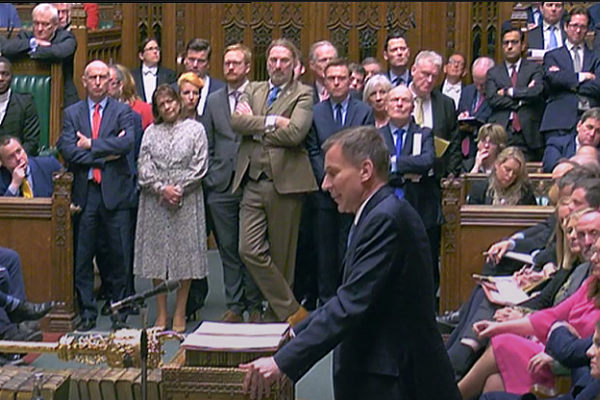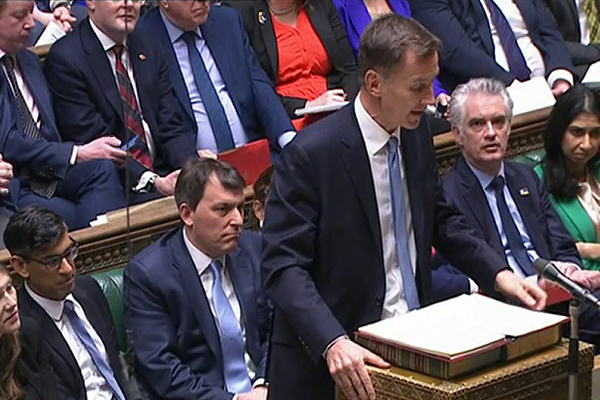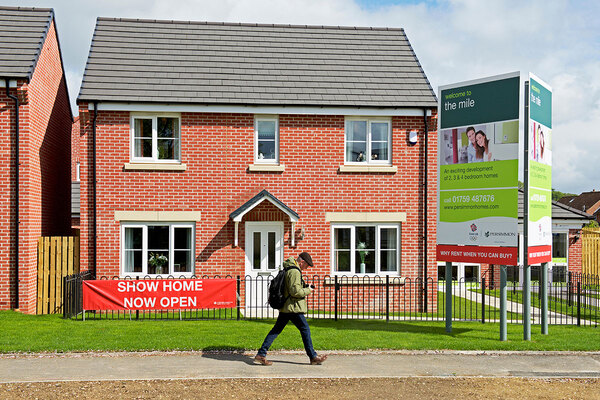Spring Budget 2023: sector figures express ‘disappointment’ over lack of decarbonisation and welfare commitments
Housing sector figures have expressed “huge disappointment” with the failure to increase Local Housing Allowance or provide additional funding for decarbonising homes during today’s Budget.
A quiet Budget for housing saw announcements on a discounted rate for councils borrowing to build new homes, as well as new powers for mayoral authorities in Greater Manchester and the West Midlands to take local control of housing grant.
But calls for funding to help decarbonise housing stock and alleviate cost of living pressures by boosting housing benefit rates for tenants renting privately were ignored.
Reaction from major housing bodies is below:
Kate Henderson, chief executive of the National Housing Federation, welcomed measures to extend the energy price cap, but added: “We have some of the oldest homes in Europe and many towns and cities across the country are in need of serious investment.
“The £750m of regeneration funding is welcome, but more investment could be targeted at improving the quality and energy efficiency of the country’s homes, which would contribute to both energy security and achieving our net zero goals, as well as helping to level up left-behind communities.”
Gavin Smart, chief executive of the Chartered Institute of Housing, added: “Housing was notable by its absence. We are disappointed that the chancellor did not use this opportunity to restore Local Housing Allowance to the 30th percentile, as we and others had called for.
“The decision to leave rates frozen at 2020 levels means the affordability gap for private renters will continue to grow, resulting in increased evictions and homelessness. We would urge government to urgently look again at this, particularly given its commitments on homelessness prevention.”
Matthew Walker, chair of PlaceShapers, said: “This is a Budget about long-term sustainable growth which can only be achieved with a long-term focus on resolving the housing crisis. We are disappointed this is not directly addressed in the Budget.
“Access to affordable housing is a defining factor in sustaining employment. While we welcome the focus on employment support and childcare costs, we are concerned at some of the negative language being used to describe people in receipt of benefits. Rather than talking of sanctions, we hope the same focus is extended to help them overcome long term barriers to employment.”
Geeta Nanda, chair of the G15 and chief executive of Metropolitan Thames Valley Housing, said: “On wider housing challenges, there was precious little in the chancellor’s statement. There is clearly more for the government to do alongside providers. It is now vital that the government works with us to help make progress on giving more people access to affordable homes that are safe, warm and dry.”
Georgia Gould, chair of London Councils, said: “Our latest figures show that at least one child in every classroom in London is homeless. There are 81,000 children in temporary accommodation across the capital, worrying about where their family is going to live.
“We had hoped to see the chancellor announce a rise in the Local Housing Allowance, which would go a long way to making housing more affordable for low-income Londoners. We also need much more support for building the affordable homes that our communities desperately need.
“Further devolution to the capital is vital. Boroughs would be in a much better position to tackle many of London’s longstanding challenges if we could take the lead on policy decisions and direct resources for investing in services.”
Clare Miller, chief executive of Clarion, the UK’s largest housing association, welcomed changes to ensure residents on prepayment meters pay the same as those on direct debits – something the organisation had written to the chancellor to request.
But she added: “We continue to be concerned about the worsening cost of living crisis for social housing residents in this country.
“We would like to see the government consider a ‘social tariff’ for the lowest-income households who are struggling to afford their basic energy needs and look at other measures to support those on the lowest incomes.”
Ross Matthewman, head of policy and campaigns at the Chartered Institute of Environmental Health, said: “We are disappointed that the chancellor appears to be taking his foot off the pedal in his Spring Statement.
“By failing to bring forward planned spending on energy-efficiency measures, he has missed a golden opportunity to both reduce energy bills and decarbonise the housing sector.”
There was also criticism of a failure to increase Local Housing Allowance rates.
Tracy Harrison, chief executive of the Northern Housing Consortium, said: “We are hugely disappointed that the chancellor has failed to use his Budget to uprate Local Housing Allowance.
“This will be a blow to renters across the red wall, who have seen rents consistently rise since 2020, while support for housing costs has been frozen.
“The continued freeze on LHA also puts our councils under huge pressure and is likely to result in more homelessness presentations and drive up the use of temporary accommodation.”
Alicia Kennedy, director of Generation Rent, said: “The millions of people who rely on the benefits system to cover their rent are being squeezed more and more, with Local Housing Allowance frozen since 2020 but rents having risen in that time by 8% nationally.
“The chancellor had an opportunity today to provide some respite by relinking Local Housing Allowance to market rents. But this inaction means we will see more people get into debt and face homelessness.”
Matt Downie, chief executive of Crisis, said: “Yet again the UK government has missed a crucial opportunity to pull thousands of people back from the brink of homelessness by investing in housing benefit. This will be nothing short of crushing for people who rely on this vital lifeline and are continuing to feel the crippling impact of the cost of living crisis.”
Rachelle Earwaker, senior economist at the Joseph Rowntree Foundation, said: “The glaring omission from the speech of any action to tackle the housing crisis – despite the OBR [Office for Budget Responsibility] forecasting a drop in housebuilding in the coming years and higher mortgage rates and soaring rents putting pressure on households – is short-sighted and means the chancellor is ignoring a growing and serious economic challenge.”
Olivia Harris, chief executive of Dolphin Living, said the aim to boost productivity would be damaged without further investment in housing.
“This is especially the case in London, where those workers who literally keep the city running are being priced out and can no longer afford to rent here. This is having a huge economic as well as social impact,” she added.
However, more funding for veteran housing was welcomed.
Lee Buss-Blair, director of operations and group veteran lead at Riverside, said: “This new money will help to transform the lives of veterans and builds on the government’s commitment to end veteran homelessness.”
Spring Budget 2023: housing headlines at a glance
- A discount of 0.4% on Public Works Loan Board borrowing rates for local authorities building new affordable housing
- New ‘deeper devolution deals’ for Greater Manchester and the West Midlands, which will allow them to “set the strategic direction” for Affordable Housing Programme funds in their regions
£200m for local regeneration projects including Tipton town centre and the Marsden New Mills redevelopment scheme
£161m for regeneration projects with mayoral combined authorities and the Greater London Authority
£400m for new levelling up partnerships in areas including Redcar and Cleveland, Blackburn, Rochdale, Oldham, Mansfield and South Tyneside
Prepayment meter bills to be brought in line with direct debits
Increasing the availability of veterans’ housing through a £30m package to the Office for Veterans’ Affairs
Sanctions on Universal Credit claimants in search of work to be applied “more rigorously”
Sign up for our daily newsletter
Already have an account? Click here to manage your newsletters
